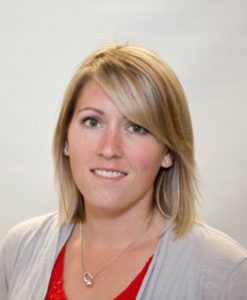
Sabrina Sullivan
Manager, Greenhouse
Deloitte Canada
Sabrina is a self-professed “salmon”. Native culture believes individuals embody characteristics of animals, and through work with first nations leaders during her undergraduate studies, her animal was discovered. A salmon swims upstream, staying strong in the face of a challenge. As a natural energetic motivator, this animal has a need for purpose, meaning and goals, and has no trouble finding volunteers for its crusades.
Sabrina has always followed her passion for business and sustainability. This May she will graduate with a dual-degree (MBA / MS) through the University of Michigan’s Erb Institute for Global Sustainable Enterprise, furthering her affinity for multi-disciplinary education and experiences. In both the Ross School of Business and the School of Natural Resources and Environment, she is recognized as a natural leader among her peers, as well as faculty in administration. At the University of Michigan, she also has served as a two-term Co-President of Design+Business, a student organization promoting design methodologies to lead and facilitate innovation, and as the Canadian representative on the Office of Career Development International Committee. Even amidst her busy academic schedule, she remained an active community leader as Director (now Emeritus) of the ReBuilding Exchange, a social enterprise promoting deconstruction and material reuse, and Board Member of TEDxWinnipeg.
Sabrina wants to define what the 21st century business leader should be, using systems and design thinking as core to achieving sustainability. This passion has led to her recognition as an inaugural Dow Fellow, receiving the Frederick A. and Barbara M. Erb Environmental Management Fellowship, being selected to observe COP17 in Durban, and contributing to a Rio+20 submission on sustainability futures and their business / policy implications.
Sabrina further leveraged her internships and graduate theses, to surface how sustainability serves as a source of innovation for business and economies. For example, during a 2012 summer internship at Ford Motor Co., Sullivan delved into the future of urban mobility by focusing on how cities function as ecosystems that must operate efficiently to provide mobility to their citizens. Working with Ford’s automotive researchers, planners and innovators, she created a market-segmentation analysis of 64 megacities and emerging megacities in the global economy to identify similarities and differences shaping their diverse mobility needs. Her “City as Customer” work stream ─ part of Ford’s “Blueprint for Urban Mobility” initiative ─ contributed to a greater understanding of global mobility challenges and potential strategies to address them. Sullivan’s penchant for systems thinking and innovation surfaced again last summer during a fellowship at the Canada-based Pembina Institute, where she led Canadian energy companies and other stakeholders in creating visions for energy in the future. She also fostered conversations about ways the energy industry could develop a more sustainable supply chain and how the adoption of innovative policies and tools could propel Canada toward a clean-energy future.
“Our world is moving toward a point where diverse industries ─ such as automotive, information technology, energy, consumer products and health care ─ will have to collaborate in order to create disruptive innovations,” Sullivan says. “I’m looking for the job, the people and the opportunity that will allow me to tap into my love of trends and addressing complex problems to create a sustainable future.”
In 2006, she received her Bachelor of Commerce with Distinction from the University of Calgary, drove the development of the school’s CSR & Sustainable Development Certificate, while serving in leadership roles with several Canadian NGOs. Following this, Sabrina worked as a Strategy Consultant with Deloitte moving between Canada and the United States, advising on sustainability, strategy, business trans